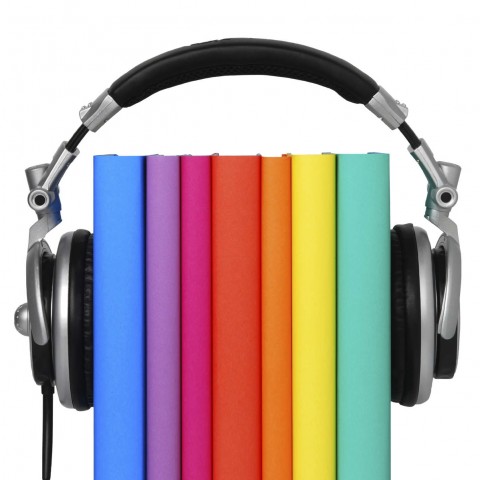
Indonesians, by and large, are nice people.
They treat foreigners very well, to be sure. Indonesia isn’t one of the hottest Asian travel destinations for nothing!
But there is one area where they could treat foreigners a little nicer: the Indonesian language itself.
They’re glad if you can speak it and will treat you well because of that, absolutely.
They just don’t think you can get good. They’ll tend to always simplify their speech and never tell you about the many mistakes you’re making. To avoid this misfortune, you’ll need to prove yourself with an Indonesian language proficiency test.
Even then, it’s no guarantee that Indonesians will take your skills that seriously. After all, there are thousands of foreigners in Bali and Jakarta who never learn more than how to order off a menu and introduce themselves in a heavy accent, if that.
If you want to live in Indonesia or find a job related to the Indonesian language, you’re going to need a certificate from a language exam that proves, without a doubt, that you know your way around the Indonesian language at a masterful level.
 Table of Contents
Table of Contents
- The One Test Indonesian Will Throw at You
- The Listening Section
- The Grammar Section
- The Reading Section
- The Writing Section
- The Speaking Section
- UKBI Preparation: Your Overall Study Strategy
- Conclusion
1. The One Test Indonesian Will Throw at You

In contrast to English, where there are zillions of big and small proficiency tests clamoring for the top spot, Indonesia has just one.
It’s called the UKBI or Uji Kemahiran Berbahasa Indonesia. In English, that’s “Indonesian Language Proficiency Test”—but you knew that already, right?
It has five different sections, which we’ll go over in detail soon, and you’re awarded a score out of 900 at the end.
Your point value then translates into one of seven different levels, or predikat. They are:
- Istimewa (“Exceptional”)
- Sangat Unggul (“Very Good”)
- Unggul (“Good”)
- Madya (“Intermediate”)
- Semenjana (“Average”)
- Marginal (“Poor”)
- Terbatas (“Limited”)
The information about this test is generally published only in Indonesian. Our translation of the Madya description is as follows:
Predikat ini menunjukkan bahwa peserta uji memiliki kemahiran yang memadai dalam berkomunikasi dengan menggunakan bahasa Indonesia.
This level demonstrates that the test participant has good communication skills in Indonesian.
Dengan kemahiran ini yang bersangkutan mampu berkomunikasi untuk keperluan sintas dan kemasyarakatan dengan baik, tetapi masih mengalami kendala dalam hal keprofesian yang kompleks.
When it comes to complex professional communication, there are still notable problems, especially in the realm of academic purposes.
According to data published in 2014, more than half of people attempting the test scored Madya, or from 482-577 points. That shows that you’re not dealing with an easy exam here!
In fact, let’s take a more-detailed look at each of the five sections and what you can expect to encounter.
2. The Listening Section

For this part of the Indonesian language exam, you’ll start out with 30 minutes of listening, during which you’ll answer 40 questions. These are broken up into eight short monologues and dialogues with five multiple-choice questions each.
That’s a good number, because you’ll be able to quickly glance over the various questions and get a feel for what you’ll need to listen for in each section.
Some of it can get quite tricky, too. One question on the practice test asks about a car’s license plate, and the choices include: “B1337AC” / “B1371AC” / “B3317CA.”
The topics for the monologues are generally about aspects of Indonesian culture and geography, as well as some explanations of scientific processes. It would definitely be a good idea to read the science sections of Kompas (an Indonesian media website) and BBC Indonesian News to stay on track.
- → Read through our vocabulary list on how to improve your Indonesian listening skills for a few tips and tricks!
3. The Grammar Section

Indonesian grammar is an interesting beast. On the one hand, it’s really easy to make simple sentences, and even to get your point across with more-complex phrases.
On the other, there are a ton of little nuances in Indonesian grammar that don’t exist at all in English.
And surprise surprise, that’s what you’ll be tested on.
Across 25 questions, you’ll have twenty minutes to take a look at sentence pairs and detect which sentence in each pair has an error. You should definitely practice Indonesian word order so you can detect any sentences that have mixed-up syntax.
Even more so, though, you should brush up on the prefixes and suffixes. Sometimes, the answers will stand out, such as an intransitive verb with a ber- prefix instead of a me- prefix.
However, the differences between -kan and no ending, or me-i and just me-, are significantly more subtle and require a lot of detailed analysis as you read.
From this point on, make it a habit to actually look at the verb forms as you read Indonesian, and think about what they could be doing in the sentence.
- → Not sure where to go from there? Read our page about How to Learn Grammar.
4. The Reading Section

A major aspect of one’s Indonesian language proficiency is how well they can understand what they read.
The reading section is kind of like the listening one, as you’ll have eight texts with five questions each. Again, you’ll be tested on nonfiction passages of around 400-500 words each, dealing with scientific or technical topics like the history of electromagnetism or how a digital camera works. You’ll have 45 minutes to complete this.
This is where native English speakers have a distinct advantage, because a lot of the formal vocabulary here is directly cognate to English.
By reading Indonesian-language reviews of cars and electronics, you’ll quickly become used to reading about technical topics in Indonesian. A general scientific knowledge in your own language wouldn’t hurt either, because if you don’t have a general idea of what gamma rays or fructose are, you’ll likely be lost even if you do recognize the vocabulary.
- → For additional tips and advice on improving your Indonesian reading skills, check out our relevant vocabulary list.
5. The Writing Section
In the writing portion, your task is relatively simple, but involves some pretty targeted Indonesian skills. You’re given a diagram and asked to summarize it in 200 words in under 30 minutes.
However, you won’t be dealing with any first-year, Anak itu sedang makan cokelat (“The child is eating chocolate”) kind of language. It’s the type of diagram you’d see in a biology or physics textbook, depicting the life cycle of a flower or how a volcano erupts.
Fortunately, Indonesian bookstores usually have excellent selections of nonfiction oriented toward children and teenagers. You can even find translated versions of the excellent DK Eyewitness books at some libraries, meaning hours of fun and education for you as a learner.
The more you read this kind of material, the easier it’s going to be to write about it on the spot.
- → Need more? Learn how to crack the Indonesian writing system!
6. The Speaking Section

This is where things get turned up to eleven real fast.
Where other exams have you roleplay, take part in a debate, or do several tasks appropriate for multiple levels, the UKBI requires you to read a brief academic article, look at a chart or graph, and then prepare a presentation for a general audience. For five straight minutes.
This is where your ability to flow seamlessly from one topic to the next in Indonesian will be seriously tested.
The topic in the test preparation guide is a graph showing the number of doctors per 100,000 people in each country in ASEAN. It’s simple enough, so how are you going to talk for five whole minutes?
Expound on the different levels of education and economic development in each country, and speculate on the possible reasons why more or fewer people tend to go into medicine.
Truly outstanding answers will make predictions for the future, basing them on a deep knowledge of current ASEAN events and political developments.
- → Learn the best ways to improve your Indonesian speaking skills, and be sure to brush up on your cultural knowledge.
7. UKBI Preparation: Your Overall Study Strategy

The interesting paradox about this exam is that there are very few resources to study for it, and at the same time, a huge number of people to study with.
As long as you’re in Indonesia, that is.
You see, Bahasa Indonesia isn’t the native tongue of all Indonesians. Perhaps in a few generations, the proportion will rise, but in most places, children grow up speaking a local language like Javanese or Minangkabau.
Now, these languages are all related to Indonesian, and with enough Indonesian in schools and through movies, books, and everything else, most Indonesians are functionally bilingual at an extremely high level.
However, if you want to be an Indonesian teacher to foreigners or to Indonesian children, you have to take an Indonesian proficiency exam. The same is true if you want to be a civil servant. That means that thousands of Indonesians take the test each year as well!
If you happen to be living in Indonesia right now, you could try contacting your local schools and asking if anybody there has experience taking the UKBI.
Even outside of Indonesia, you might be able to get the WhatsApp contact info for the Darmasiswa (foreign student scholarship) program directors and ask for assistance directly.
Indonesian society is often based on knowing people and maintaining personal connections. People used to quickly finding information online about whatever they need might quickly become frustrated as they try to navigate a world where phone calls and text messages are much more common.
For that reason, there’s just one textbook about the UKBI exam available online, written by Atikah Solihah; it’s simply called Latihan Soal UKBI. Buy that book for a couple of dollars, study it well, and you’ll be at a great advantage when it comes time for the test.
8. Conclusion
We hope that after reading this article, you’re more confident in your ability to ace your Indonesian language exam. Did we answer your questions, or do you still need clarification on something? We look forward to hearing from you!
And by the way, the very website you’re on isn’t a bad resource either! The advanced dialogue that IndonesianPod101 lessons deal with are on more advanced and formal topics in exactly the style that you’ll encounter on the exam.
The more you listen to and read real Indonesian, the better you’ll do on that Indonesian exam—especially when it’s all in one place with transcripts for every podcast episode!
Check out IndonesianPod101.com lessons today, and get ready to attack the UKBI exam with flying colors!






















